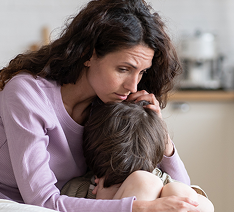Resolve Your Dispute with our
Brisbane Mediation Services
At Mediations Australia, our mediators are nationally accredited and are highly experienced in all family law issues. Moreover, all of our Brisbane divorce mediators have practised family law and have significant expertise and knowledge in all facets of relevant le
Mediations Australia’s Brisbane divorce mediators have practised family law and have significant expertise and knowledge in all facets of relevant legislation and case law.
The Benefits of our
Brisbane Mediation Service
Family law mediation offers several advantages over traditional litigation in Brisbane. One significant benefit is that it allows the parties involved to have control over the decision-making process. In a mediation setting, both parties actively participate in negotiating the terms of their agreement, leading to more personalized and mutually satisfactory outcomes.
When engaging in family law mediation, it is important to understand the various benefits it provides. One such advantage is the opportunity for open and honest communication between the parties involved. Unlike court proceedings, which can be intimidating and formal, mediation sessions are conducted in a private and confidential environment. This confidentiality fosters an atmosphere of trust, allowing individuals to express their concerns and needs without fear of judgment or public scrutiny.
Moreover, family law mediation promotes a sense of empowerment and collaboration. Instead of relying solely on legal arguments and the decision of a judge, mediation allows the parties to actively participate in finding solutions that work best for their unique circumstances. This collaborative approach often leads to more creative and customized outcomes, tailored to the specific needs and interests of each individual.
Another significant advantage of family law mediation is its cost-effectiveness and efficiency. Court proceedings can be lengthy and expensive, spanning months or even years. In contrast, mediation sessions typically take less time to complete, as they are focused solely on resolving the issues at hand. This not only saves valuable time but also reduces legal fees, as fewer court appearances are required. The financial savings can be particularly beneficial for families going through a divorce or separation, as it allows them to allocate their resources towards rebuilding their lives and supporting their children.
Furthermore, family law mediation encourages a more amicable and less adversarial approach to resolving disputes. In litigation, the parties are pitted against each other, with each side trying to prove their case and win. This adversarial nature often leads to heightened conflict and increased emotional distress. In contrast, mediation promotes a cooperative environment, where the focus is on finding common ground and reaching a mutually acceptable resolution. This approach not only reduces stress but also helps to preserve relationships, especially when children are involved.
In summary, family law mediation in Brisbane offers numerous benefits over traditional litigation. From providing a confidential and supportive environment to promoting collaboration and cost-effectiveness, mediation empowers individuals to actively participate in the decision-making process and find personalized solutions that work best for their unique circumstances. By choosing mediation, families can navigate through challenging legal matters with greater ease and achieve outcomes that are mutually satisfactory and in the best interests of all parties involved.
Our Brisbane Mediation
Resolution Process
The process of family law mediation in Brisbane is a crucial step in resolving disputes and reaching mutually agreeable outcomes for all parties involved. It provides a structured and supportive environment where individuals can discuss their concerns, explore potential solutions, and work towards a resolution that meets the needs and interests of everyone.
When embarking on the journey of family law mediation in Brisbane, the process typically begins with an initial consultation. During this consultation, the mediator takes the time to explain the purpose and structure of mediation, ensuring that all parties have a clear understanding of what to expect. It is also an opportunity for the mediator to assess the suitability of mediation for the specific case and address any concerns or questions the parties may have.
If mediation is deemed appropriate, the mediator will proceed to schedule a series of sessions. These sessions can take place either face-to-face or using online platforms, depending on the preferences and circumstances of the parties involved. The flexibility in choosing the mode of communication ensures that geographical barriers or other logistical challenges do not hinder the progress of the mediation process.
Throughout the mediation process, the mediator acts as a neutral facilitator, guiding the conversation and ensuring that both parties have an opportunity to express their views and concerns. This impartial presence helps create a safe and respectful environment where individuals can openly communicate and work towards finding common ground.
One of the key aspects of family law mediation in Brisbane is the emphasis on exploring potential solutions. The parties are encouraged to brainstorm and consider various options that could address their underlying interests and needs. The mediator may suggest using experts, such as child psychologists or financial advisors, to provide additional information or guidance when necessary. These experts can offer valuable insights and help the parties make informed decisions that are in the best interest of all involved.
As the mediation process progresses, the parties engage in constructive dialogue, actively listening to each other’s perspectives and working towards a mutually agreeable outcome. This collaborative approach fosters understanding and promotes the development of creative solutions that may not have been initially considered.
Once an agreement is reached, it is documented and can be used as the basis for a legally binding agreement. This formalization of the agreement provides clarity and ensures that all parties are committed to upholding their obligations moving forward. It also offers a sense of closure and finality, allowing individuals to move forward with their lives knowing that their concerns have been addressed and resolved.
In conclusion, family law mediation in Brisbane is a comprehensive and structured process that aims to facilitate open communication, explore potential solutions, and reach mutually agreeable outcomes. It provides individuals with the opportunity to actively participate in the resolution of their disputes, empowering them to make informed decisions that prioritize the well-being of all parties involved.
Understanding Your Brisbane Mediation Session
Family law mediation sessions in Brisbane are structured to provide a safe and respectful environment for all parties involved. The mediator ensures that everyone has an equal opportunity to speak and be heard, without interruptions or disrespectful behavior. While emotions can run high during these sessions, the mediator helps maintain a calm and productive atmosphere.
The mediator will guide the parties through various topics relevant to their case, such as childcare arrangements, financial matters, and asset division. It is essential to come prepared with relevant information and documents to facilitate the discussion and decision-making process. The mediator may ask probing questions to facilitate a deeper understanding of each party’s needs and concerns.
During a family law mediation session in Brisbane, the mediator acts as a neutral third party, assisting the parties in reaching a mutually acceptable agreement. They do not provide legal advice but focus on facilitating communication and finding common ground. The mediator’s role is to help the parties explore different options and find creative solutions that meet their unique needs and circumstances.
One of the key benefits of family law mediation is that it allows the parties to have more control over the outcome of their case. Unlike going to court, where a judge makes the final decision, mediation empowers the parties to actively participate in the decision-making process. This can lead to more satisfactory and sustainable agreements, as the parties have a greater sense of ownership over the outcome.
Family law mediation sessions are typically confidential, meaning that what is discussed during the session cannot be used as evidence in court. This confidentiality encourages open and honest communication, as the parties can freely express their concerns and explore potential solutions without fear of their words being used against them in future legal proceedings.
It is important to note that family law mediation is not suitable for every situation. In cases involving domestic violence, child abuse, or significant power imbalances, mediation may not be appropriate. In such instances, it is crucial to prioritize the safety and well-being of all parties involved and seek alternative dispute resolution methods or legal intervention.
Overall, family law mediation sessions in Brisbane provide a structured and supportive environment for parties to work towards resolving their disputes amicably. By fostering effective communication, understanding, and cooperation, mediation can help families navigate the complexities of family law matters and reach agreements that are in the best interests of all involved.
How Our Brisbane Mediation Services Can Help
Engaging a family law mediator in Brisbane offers several advantages over attempting to navigate family law matters independently. Firstly, a mediator brings a neutral perspective to the table, ensuring that both parties’ interests are considered and facilitating a fair negotiation process. Mediators also have extensive experience in managing high-conflict situations, helping parties navigate complex emotions and maintain a productive dialogue.
Additionally, a family law mediator can provide valuable insights into the legal landscape, helping parties understand the potential outcomes of their case and the legal principles that may apply. By leveraging their knowledge and expertise, mediators can guide parties towards solutions that align with legal requirements and best serve their interests.
One of the key advantages of using a family law mediator in Brisbane is their ability to create a safe and supportive environment for all parties involved. Family law matters can be emotionally charged and highly sensitive, often involving issues such as divorce, child custody, and property division. In such situations, having a skilled mediator can make a significant difference in the overall experience and outcome.
When engaging a family law mediator, both parties can expect a structured and organized process. Mediation sessions are typically scheduled at mutually convenient times and locations, ensuring that everyone involved has an equal opportunity to participate. The mediator will establish ground rules to maintain a respectful and constructive atmosphere, allowing each party to express their concerns and interests openly.
Furthermore, a family law mediator can help parties explore a wide range of options and creative solutions. Unlike traditional litigation, where a judge makes the final decision, mediation allows the parties to have more control over the outcome. The mediator will facilitate discussions and brainstorming sessions, encouraging the parties to think outside the box and consider alternative approaches that may not be available in a courtroom setting.
In addition to the legal aspects, a family law mediator can also provide emotional support and guidance throughout the process. They understand the challenges and complexities involved in family law matters and can offer empathy and understanding to both parties. By fostering open communication and empathy, a mediator can help parties find common ground and work towards mutually beneficial resolutions.
Another advantage of using a family law mediator is the potential for cost savings. Mediation is generally a more cost-effective option compared to litigation, as it typically requires fewer hours of professional time and avoids the expenses associated with court appearances and lengthy legal procedures. By resolving disputes through mediation, parties can save both time and money, allowing them to move forward with their lives more quickly.
Overall, engaging a family law mediator in Brisbane offers numerous advantages. From providing a neutral perspective and managing high-conflict situations to offering valuable legal insights and emotional support, mediators play a crucial role in helping parties navigate the complexities of family law matters. By choosing mediation, parties can have more control over the outcome, explore creative solutions, and potentially save time and money.
Mediations Australia provides national mediation services in all family law related matters. Regardless of the type of family law dispute, our Brisbane Mediation office can assist you.
Family Law Disputes
Our Brisbane Family Mediation service can assist you in all issues relating to your family law dispute.
Section 601 Certificates
Our Brisbane Family Mediation team can issue Section 601 Certificates. These certificates are mandatory before an Application for Parenting Orders cab be heard by the court.
Parenting Plans
We can assist you in the negotiation of all parenting arrangements with your ex-partner and come to an agreement that becomes legally binding.
De Facto Relationship Disputes
If you and your ex-partner were in a de facto relationship, for a period of 2 years or more, you and your ex-partner may be required to participate in mediation. We can help.
Financial Agreements
Our Brisbane Family Mediation team can work with you and your ex-partner in all matters relating to financial agreements relating to joint assets and liabilities.
Property Settlements
Our Brisbane Family Mediation team often are engaged in resolving property settlement disputes. We can work with you and your ex-partner through the issues, reach an agreement and have the agreement bound by law.
Brisbane
Mediation
FAQ’s
How to Prepare for Mediation
Proper preparation is crucial when engaging in family law mediation in Brisbane. Here are some key steps to help you prepare:
Family law mediation can be a complex and emotionally charged process. It requires careful planning and consideration to ensure that your interests are effectively represented. By following these steps, you can navigate the mediation process with confidence and increase the likelihood of reaching a satisfactory resolution.
Gather relevant documents:
Collecting all the necessary documents related to your case is an essential first step in preparing for family law mediation. These documents may include financial records, property deeds, and any existing court orders. By having these documents readily available, you can provide accurate and comprehensive information during the mediation process, which can help facilitate a fair and informed discussion.
Identify your priorities:
Before entering into mediation, take the time to reflect on your needs and interests. Consider what outcomes you would find acceptable and what issues are most important to you. This clarity will enable you to advocate for your priorities effectively during the mediation process. By understanding your own goals and objectives, you can better communicate your needs to the mediator and the other party involved.
Consider seeking legal advice:
While family law mediation does not require legal representation, consulting a family lawyer can provide valuable guidance and ensure you understand your rights and obligations. A family lawyer can help you navigate the complexities of the legal system, provide advice on potential outcomes, and help you develop a strategy for the mediation process. Their expertise can be particularly beneficial if your case involves complex legal issues or if there is a significant power imbalance between the parties.
Manage emotions:
Emotions can run high during mediation, as it often involves discussing sensitive and personal matters. It is essential to find healthy ways to manage your emotions and remain focused on finding a constructive resolution. Consider engaging in self-care activities such as exercise, meditation, or talking to a trusted friend or therapist. By taking care of your emotional well-being, you can approach the mediation process with a clear and calm mindset, which can lead to more productive discussions.
Be open to compromise:
Mediation is a process that involves give-and-take. It requires both parties to be open to compromise and willing to find common ground. While it is important to advocate for your interests, being rigid and unwilling to consider alternative solutions can hinder the progress of the mediation. By approaching the process with an open mind and a willingness to explore different options, you increase the chances of reaching a resolution that meets the needs of all parties involved.
Preparing for family law mediation in Brisbane requires careful consideration and planning. By gathering relevant documents, identifying your priorities, seeking legal advice if necessary, managing your emotions, and being open to compromise, you can increase the likelihood of a successful mediation process. Remember, the goal of mediation is to find a mutually acceptable resolution that promotes the best interests of all parties involved. With proper preparation, you can navigate the mediation process with confidence and work towards a positive outcome.
What exactly is mediation?
Mediation is a procedure in which a neutral third person, known as a mediator, assists parties who are involved in a problem in reaching a mutually accepted resolution. The result of the mediation is in the hands of the participants.
Using innovative problem-solving strategies, a mediator aids the parties in identifying their needs and interests while also facilitating dialogue and promoting understanding. This allows the parties to establish their own accord.
In contrast to court or arbitration, no one can force a side to accept a solution. If all of the parties do not agree on the outcome, the matter will stay unresolved for the time being.
Mediation provides parties with far greater influence over the manner in which their disagreement or difference is resolved, as well as over the outcome.
If talks have come to a stalemate, mediation can be used as a last resort before resorting to a lawsuit or other more formal methods. When it comes to finding solutions, the possibilities are frequently higher than the remedies available in courts and tribunals, or even via extended discussion.
Is it possible to get a divorce through a mediator?
No, obtaining a divorce is distinct from determining child custody and support arrangements or settling a property settlement. It is possible that you may have to make difficult decisions concerning the future care of your children as well as how to split your property, money, and things when you separate, regardless of whether you are divorced or not. Mediation may be able to help you settle these issues.
In the legal sense, divorce is the dissolution of a marriage. When the divorce is finalised, you will be able to marry again. Without a divorce, you will be unable to get married again. The fact that you are still married has an impact on your rights and duties in financial concerns, wills, and estates. Obtaining a divorce is accomplished through the completion of an Application for Divorce (with certain accompanying documents).
At Mediations Australia, we do have family lawyers who can assist you with divorce.
What happens if we reach an agreement during Mediation?
The Mediator can produce a Heads of Agreement that will be signed by both parties on the day of the Mediation if you and your counterpart come to an agreement during the Mediation. If you want your agreement to be legally binding and enforceable, you can have it made as a Court Order if that is what you desire.
Lawyers are not often invited to Mediation; however, you may choose to attend if you choose. If you and the mediators reach an agreement, the mediators invite you to consult with a lawyer to see if your agreement makes sense for you. You are invited to consult with a lawyer or financial expert at any moment throughout the Mediation to seek advice on your situation.
At Mediations Australia, we’re a one-stop shop. We have both mediators and family lawyers ready to help.
What should I do if I have worries about something on the day of the mediation session?
A great deal of individuals are worried before they go to Mediation, which is completely normal and anticipated. However, it is quite vital to notify the Mediator if you feel upset or uneasy on the day of Mediation.
A support person may accompany you on the day of mediation; however, you and your support person will need to agree on whether or not they will be present in the room when personal material is being exchanged. If you intend to bring a support person to your Mediation, please ensure that they are familiar with the requirements of the Mediation Agreement (particularly the Confidentiality provisions) and that they understand them before proceeding.
After a period of time, you may or may not have seen your former spouse again, and there may be new issues that develop that you were not previously aware of and that you will need to take into consideration when making your selections. Your emotions may be affected, and you may experience feelings of emotional distress and disappointment or regret when these situations develop. It’s completely natural and anticipated.
It is possible that your expectations for the outcome may be exceeded. Being presented with these realities might be difficult to hear at times, but it is critical that you grasp the implications of your expectations or the actions that you have made.
You may be certain that everything said in the private sessions with the Mediator is kept strictly secret, allowing you to be as open and honest with the Mediator as you choose. Every time these issues emerge, it is critical to be open and honest with the Meditator in order for us to have a thorough discussion.
What occurs on the day of the Mediation?
In general, the Mediator will greet each party and walk them through the Mediation process as well as the regulations of the Mediation process.
During the discussion, each side will be invited to express their objectives and concerns with regard to resolving the issues. Each of you will have an equal amount of time to express yourselves, and neither party will be interrupted throughout this process.
The Mediator will look for areas of agreement and help to explain any matters that remain in disagreement. The Mediator will summarise the problems that need to be resolved and organise them into an Agenda that will serve as a framework for the Mediation.
Each party will be requested to explain their viewpoint to the opposing party on each of the issues on the agenda, which will be posted on the website. The parties will also be urged to consider other approaches to addressing any issues that have arisen, and they will then engage in separate sessions with the Mediator to further explore their alternatives for reaching a settlement. After then, if both parties agree, an agreement will be struck.
But do remember, most mediations do not occur in person, but via zoom or alternatively, with you and your former partner in different rooms. The mediator in this situation will shuttle between you both.
What if I prefer to take my case to court?
Depending on the circumstances, the court process can take up to two to three years and is typically extremely expensive and emotionally demanding for the family and children. If you go to Court, you are transferring your decision-making authority to the Judge, who will then settle your property distribution and any issues regarding your children. It is uncertain since the Judge may or may not like you and may or may not believe what you are saying.
Before filing for divorce if you have children and are unable to come to an agreement on parenting arrangements, you must first attend FDR Mediation before filing for divorce (with some exceptions).
If you and your former partner are unable to reach an agreement on how to divide your property and finances and wind up in court, the Court may frequently send you to Mediation in order to try to resolve the situation before referring the case to a judge.











